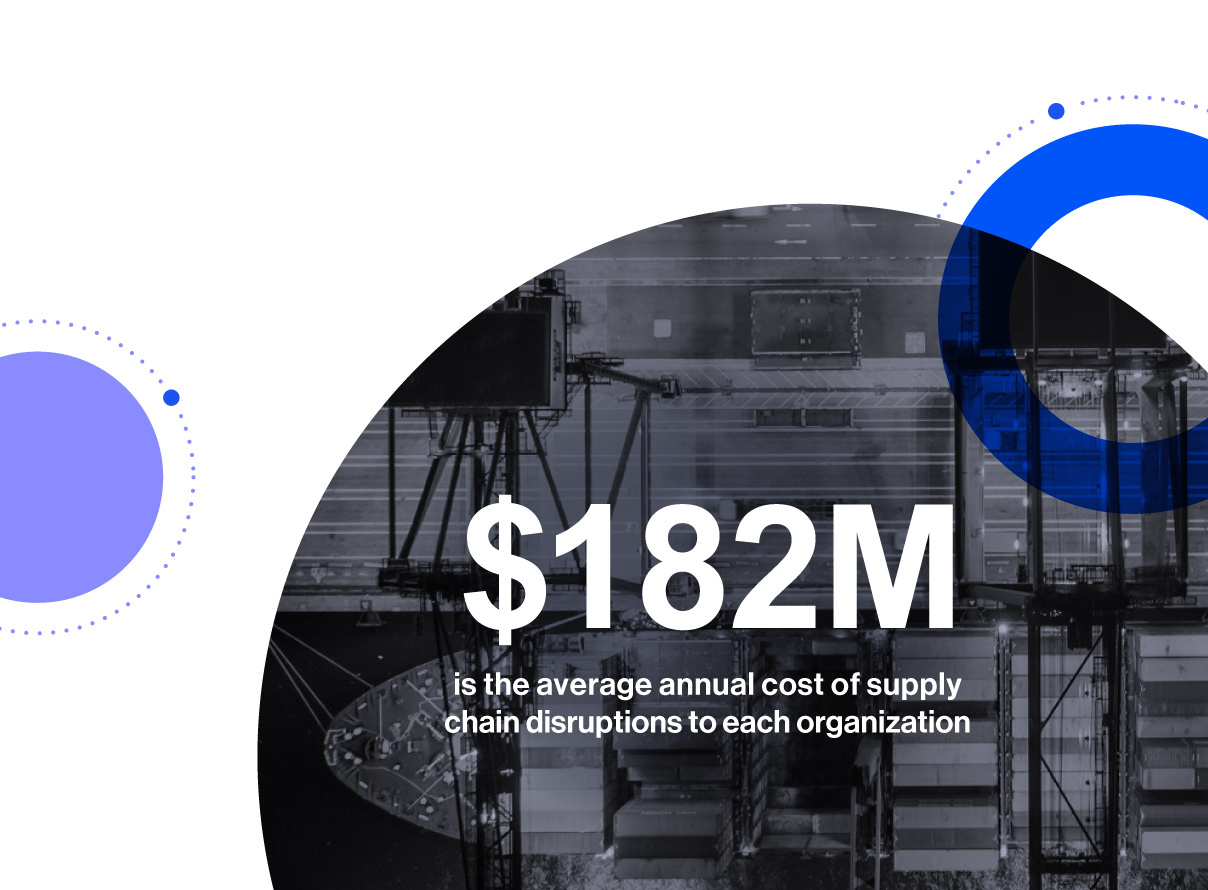Disruption is the New Normal
Today’s large enterprises must factor disruptions within their supply chain into their long-term planning. Recent years have seen global shocks such as the U.S.-China trade war, the COVID-19 pandemic and Russia’s invasion of Ukraine. Companies and government agencies alike are focused on finding ways to navigate these crises to keep their essential supply chains running as effectively as possible. With the fallout from successive disruptions continuing, and the next significant event likely only around the corner, it is essential that organizations understand where they are on their resilience journey. Key findings from our research include:







